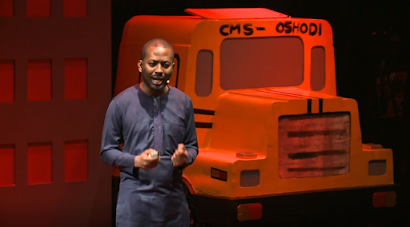"Life is Like a Box of Chocolates": Conservative Ideology in Forrest Gump
 |
| Source: IMP Awards (http://www.impawards.com/1994/forrest_gump.html) |
Released on July 6, 1994, Forrest Gump earned more than $300 million in the domestic box office. The movie follows the title character with the innocence of a child and an IQ of 75 through various political climates of the 50s into the early 90s. It has been dubbed the “romantic, rollicking tale of an innocent at large in an America that is losing its innocence.” According to Jennifer Wang, a doctoral student at the University of Wisconsin in Communication Arts in the spring of 2000 for Cinema Journal, Forrest Gump “profited from and contributed to the unsettled political climate” she believes the discourse of the Republican party created in its reestablishment of patriarchy, nuclear families, and a “preferably white and male” social order. Using her research I will explain why I believe Forrest Gump aligns itself with the right of center views outlined by Giannetti and the chosen target audience possesses the same conservative values.
The film utilizes reconstruction of postwar history through technology that are presented in a few notable scenes; because it is presented in an episodic narrative and use of flashbacks, the history shown is “fragmented” and “one-dimensional,” creating a “recycled” visual history with Gump doctored into real archival footage. Critics predicted at the time of the film’s debut that Forrest Gump would skew viewers’ ability to distinguish real images from “clever counterfeits.” Reality can even be reversed. John Lennon’s anti-war song Imagine is itself refashioned in one of these doctored footage scenes on the Dick Cavett Show, going from decrying materialism and religion to a love of American consumerism and Christianity unknowingly composed by Gump in the interview.
In a second point, the historical memories observed by the viewer are re-framed more so to integrate into Gump’s story. Personally, I enjoy this movie as a whole as it is also intended to show one man’s story and perspective of history that can just as easily be a tale about “everybody’s life.” The confusion and conflict present in the 60s is contrasted to the 50s through the comparison of Forrest’s life to his childhood love, Jenny, who embodies more of the former through her “free love” lifestyle and choices while Forrest especially in fashion portrays “all of the good American virtues” with his everlasting crew-cut hairstyle and gingham shirts.
Race and gender themes relevant to the decades are also explored. On the side of gender, the film seems allegorically to connect her self-destructive behavior from her promiscuity, drug use, and antiwar activism following her breakaway from 50s values to historical chaos. The women’s movements are non-existent in the film, which can be evaluated as a repression of emerging progressive politics regarding feminism. Jenny is beaten by her boyfriend in the Black Panther Party scene, and Forrest is the only one who intervenes as the Panthers stand by. In this light, activism of the period is vilified and political change does not look any better reflecting the period.
 |
| Source link (https://app.emaze.com/@AOIRZLCIZ#1) |
Only two scenes explicitly reference racial conflict in America the 60s, one of which is the doctored footage of George Wallace’s defense of segregation (image above). The camera focused more on Forrest’s incomprehension of the controversy while the viewer hears nothing about the integration order in effect from the same speech. The other is part of the Black Panther Party scene where an unidentified black man fiercely addresses their cause to Forrest and threats of racial war; a parallel can be drawn between this man and Wallace, who reiterate the aforementioned conservative politics arguably held and championed by Forrest as the movie progresses.
As I stated previously, I personally enjoy this movie because its pathos tends to deeply resonate with my idealistic and frequent rose-colored glasses perspective on life. However, after seeing this movie more times than I can count on ten hands (if I had them, of course), this criticism of the film’s ideology increasingly appealed to my politics that question many conservative values in our current social climate. Based on Wang’s assessment, I can confirm Forrest Gump is a right of center film in connection to Giannetti’s model. Consequently, the film also subversively pushes reinforced messages of conservative American values towards the appropriate target audience that, to an extent, continue to be reflected in our democratic system today.

Comments
Post a Comment